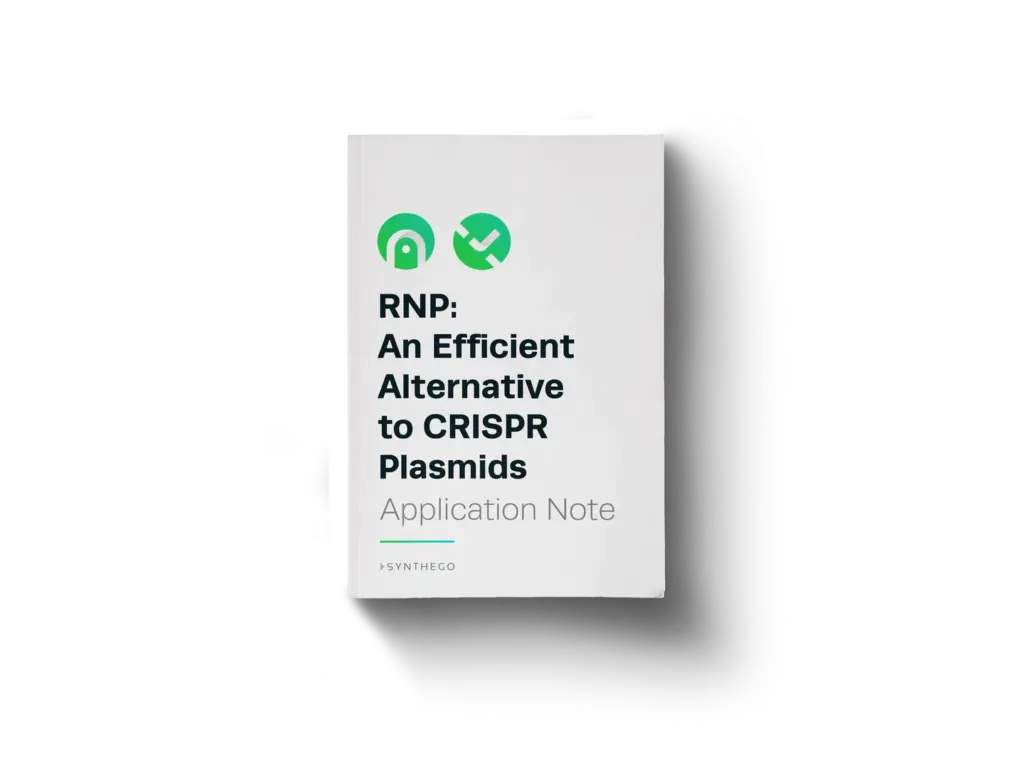RNP: An Efficient Alternative to CRISPR Plasmids
Learn why ribonucleoproteins using synthetic sgRNA are a better alternative to plasmids
Plasmids and ribonucleoprotein (RNP) complexes comprising synthetic single guide RNA (sgRNA) and Cas9 are the most common CRISPR editing formats. This application note compares the RNP and plasmid workflows and demonstrates that RNPs offer faster, precise, less cytotoxic, and more efficient editing than CRISPR plasmids.
This application note provides a detailed, side-by-side comparison of both synthetic sgRNA-Cas9 RNP and plasmid-based transient transfection methods for CRISPR delivery. We compare the experimental time, editing efficiency, specificity, and effects on cell viability between the experimental workflows. RNPs using high-grade synthetic sgRNAs provide a faster, precise, and more efficient alternative to plasmid-based methods.
Topics covered in the application note include:
- Overview of transient transfection methods for CRISPR delivery
- Differences in experimental times for RNP and plasmid-based transient transfection
- Comparison of CRISPR editing efficiencies and impact on cell cytotoxicity
- Off-Target Effects & Other Considerations of CRISPR edits with RNPs versus plasmids
Stay one step ahead in your CRISPR edits with RNPs and synthetic sgRNAs! Download the RNP: An Efficient Alternative to CRISPR Plasmids Application Note today!
